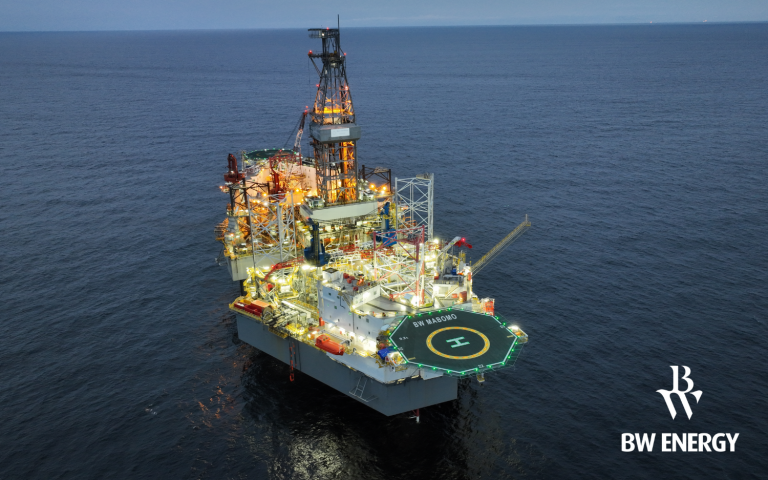Strategic Mobilisation Ghana Ltd. (SML) announces contract extension to the upstream petroleum sector, despite prior denial from Ghana Revenue Authority (GRA).
Dr. Yaa Serwaa Sarpong, Director of Support Services at SML, confirmed the development during the company’s fifth anniversary event, highlighting SML’s growing mandate in securing government revenue through technological oversight and data systems.
“We have a contract for that—an extended scope to replicate the downstream model in the upstream space.
“This will allow the Ghana Revenue Authority (GRA) to gain real-time insight into crude oil extraction, storage, and exports.”
Dr. Yaa Serwaa Sarpong, Director of Support Services at SML
This announcement signals a strategic move by SML to broaden its operational reach beyond fuel audit services in the downstream petroleum sector, where it has built a reputation for digitizing fuel tracking and reducing revenue leakages.
Despite SML’s announcement, the Ghana Revenue Authority had earlier refuted claims of any formal arrangement to extend SML’s services into upstream petroleum monitoring.
The upstream expansion will give the GRA access to previously under-monitored segments of the oil production chain, where revenue loss has often occurred due to data opacity and weak oversight mechanisms.
With SML’s real-time data infrastructure, petroleum liftings across key locations such as Takoradi, Akosombo, and Bolgatanga will now be closely tracked.

“Our technology is already providing real-time insights into petroleum liftings at multiple terminals.
“We are able to bridge volume gaps and give GRA better tools to ensure Oil Marketing Companies (OMCs) pay the right taxes.”
Dr. Yaa Serwaa Sarpong, Director of Support Services at SML
The upstream oversight is expected to close significant gaps in the tax net by making oil production more transparent and auditable, a critical measure as Ghana continues to ramp up crude exports and expand its energy infrastructure.
Since its inception in 2018 under a subcontract from the GRA, SML has helped improve Ghana’s downstream petroleum sector by digitizing the monitoring of fuel volumes and movement.
Its solutions have helped reduce discrepancies between actual volumes and tax declarations, significantly improving revenue collection.
“Our story began with a bold vision: to support governments in safeguarding national revenue through end-to-end audit and revenue assurance services.
“Even at that early stage, our team demonstrated the value we could bring—combining precision, accountability, and technical expertise.”
Dr. Yaa Serwaa Sarpong, Director of Support Services at SML
The company claims that its real-time data feeds have enhanced the GRA’s ability to monitor petroleum movements and enforce compliance more effectively, particularly among OMCs.
New Push into Solid Minerals Monitoring

In addition to its upstream petroleum expansion, SML is also entering Ghana’s solid minerals sector.
Dr. Sarpong revealed that the company has developed a proprietary digital platform named SML Nova, initially focused on tracking gold. This initiative aligns with government efforts to formalise small-scale mining, reduce smuggling, and boost gold-related tax revenues.
“We have signed a contract to track solid minerals, beginning with gold.
“SML Nova is our system designed to enhance transparency and traceability across the entire value chain.”
Dr. Yaa Serwaa Sarpong, Director of Support Services at SML
The Minerals Commission and the Ministry of Finance have long grappled with poor reporting and under-declaration in the mining sector. SML’s entry is anticipated to provide stronger data tools for enforcement, licensing, and export regulation.

“This isn’t just about technology—it’s about building trust in the system.
“When the government knows what’s being lifted, sold, and exported, it can plan better, collect more, and ultimately serve citizens better.”
Dr. Yaa Serwaa Sarpong, Director of Support Services at SML
The expansion of SML’s mandate has drawn some scrutiny, particularly around contract terms and market dominance, the conflicting narratives with the GRA regarding upstream operations raise questions about inter-agency coordination and communication.
However, the company maintains that its work is in full compliance with national regulations and is backed by contractual agreements with the GRA and other state institutions.
SML’s announcement adds a new dimension to Ghana’s ongoing efforts to tighten oversight in its resource sectors. However, for the upstream contract to deliver its intended benefits, clarity and alignment among stakeholders—particularly between SML and the GRA—will be crucial.
As SML pushes forward with plans to enhance transparency and revenue protection in both oil and mineral sectors, public and governmental oversight will remain critical to ensure accountability, value for money, and public trust.
READ ALSO: Cedi Gains Not Enough for Recovery – IERPP Boss Warns Against Overreliance on Global Trends



















